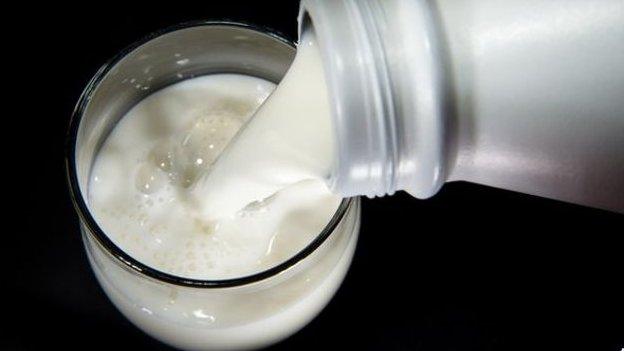EU aid package for farmers disappoints Ulster Farmers Union
- Published
Representatives of the Ulster Farmers' Union have travelled to Brussels to take part in the protest, as Conor Macauley reports.
The Ulster Farmers' Union (UFU) has said it is "disappointed" by the aid package for European farmers announced by the European Commission.
The aid package, worth 500m euros (£365m), was announced at a meeting of EU farm ministers in Brussels.
It is understood the bulk of the money will be used to support the dairy sector in the various member countries.
But there will be no increase in the milk intervention price, a key demand of Northern Ireland's dairy industry.
It is the price at which Europe buys milk and milk powders to shore up the market and currently stands at about 16 to 17p.
The commission said raising the price was not the "appropriate policy" and would not solve the current market problem.
It added that it would create an "artificial outlet" for EU dairy products, pushing market prices further down.
The commission's aid package is intended to help farmers' cash flow problems and stabilise agricultural markets.
However, DUP MEP Diane Dodds said it "falls well short" of what is needed.
She called on EU Agriculture Commissioner Phil Hogan to rethink and do more, especially on the milk intervention price.
Agriculture Minister Michelle O'Neill said: "We have thousands of farmers on the streets of Brussels here today waiting for answers and waiting for a glimmer of hope in terms of what support they're going to achieve.
"That information still isn't clear at this minute in time."
During the talks, thousands of European farmers held protests near the EU headquarters over falling farm produce prices and many blocked streets with tractors.
Representatives of Northern Ireland's farming industry were among those attending the demonstrations, 23 of them from the UFU.
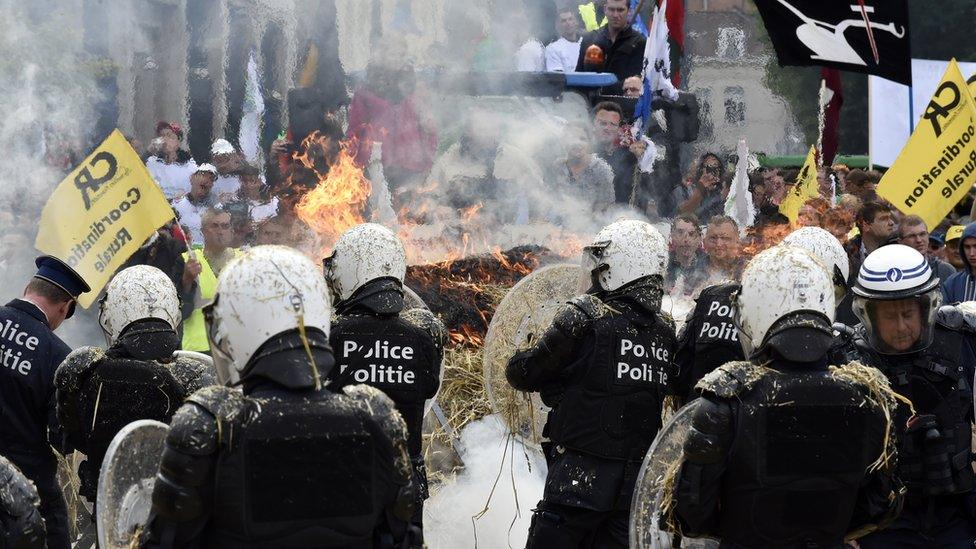
EU farmers, mainly from Belgian, France and Germany, protested in Brussels against plummeting prices for their produce
In the meeting, the commission said it would give member states the flexibility to advance up to 70% of direct subsidy payments to farmers and 85% of rural development payments from 16 October. They are normally paid in December.
The commission said it would allow for flexibility about the checks normally done before payment.
However, the UFU questioned whether, given the complexity of checks under the new Common Agricultural Policy payment system, farmers would get their money any earlier.
The aid package includes new private storage schemes for dairy protein products and pigmeat; an attempt to remove trade barriers in non-EU countries and more missions to non-EU countries in an attempt to open new markets.
EU sanctions
Farmers have been under pressure for some time, due in part to a Russian ban on EU food imposed in response to EU sanctions over Ukraine.
A slowdown in the Chinese economy and the shrinking of markets in some oil producing countries has also had an impact.
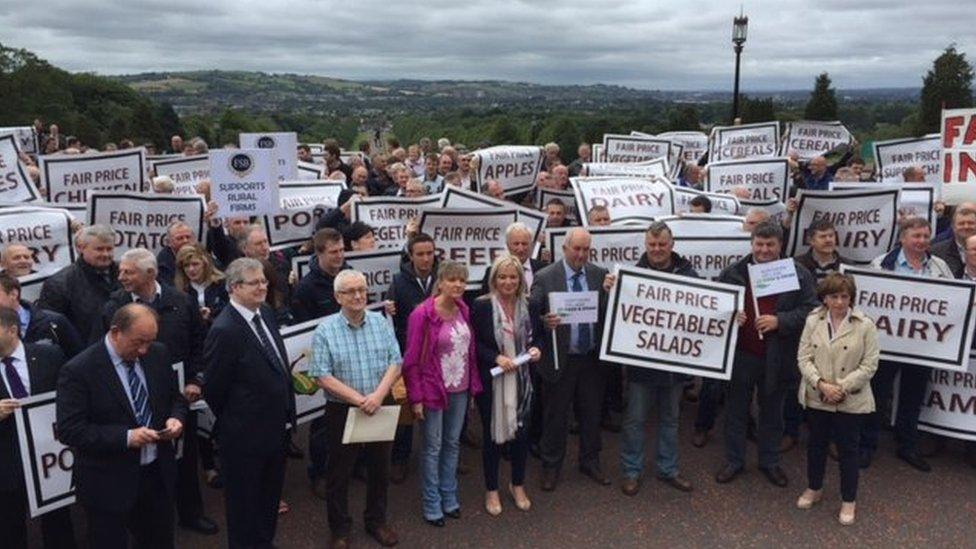
Farmers, processers and retailers held a protest at Stormont on Friday to highlight volatility in prices
Northern Ireland's farmers have the complication of a weak euro, making their exports to the Eurozone more expensive.
In the dairy sector, 85% of milk produced in Northern Ireland is destined for the export market.
Latest figures show that in July, farmers in Northern Ireland got 18.87p a litre for milk - about 10p a litre below production cost.
- Published7 September 2015
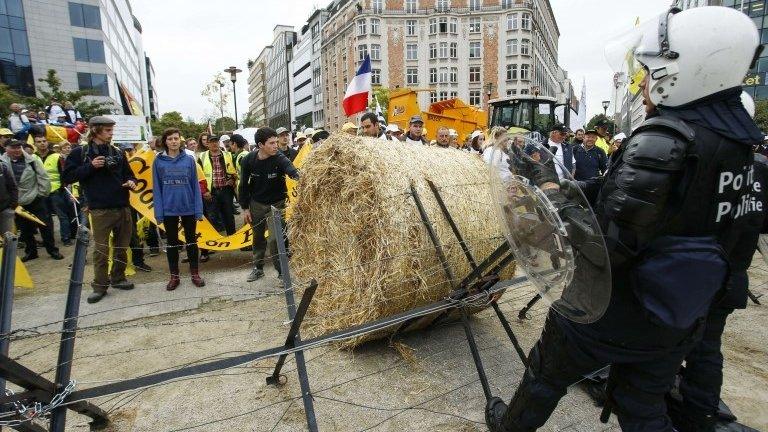
- Published4 September 2015
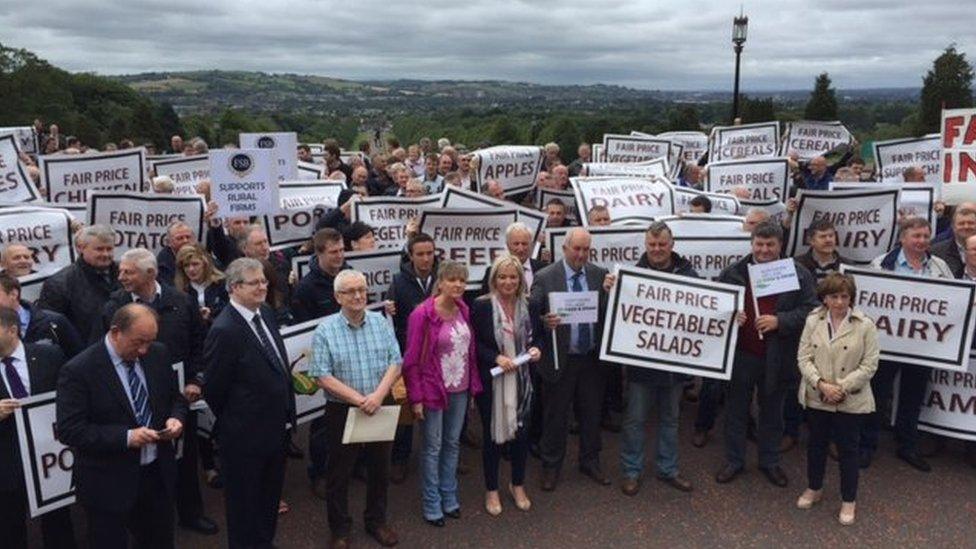
- Published15 August 2015
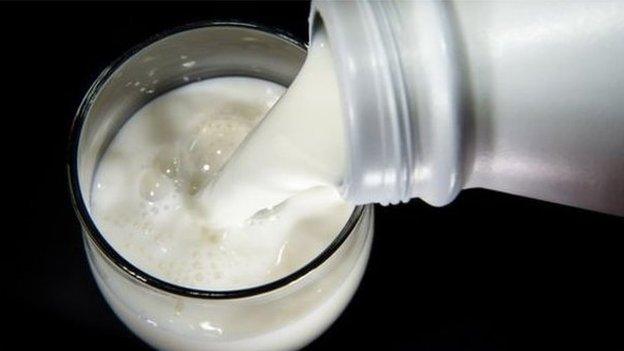
- Published29 July 2015
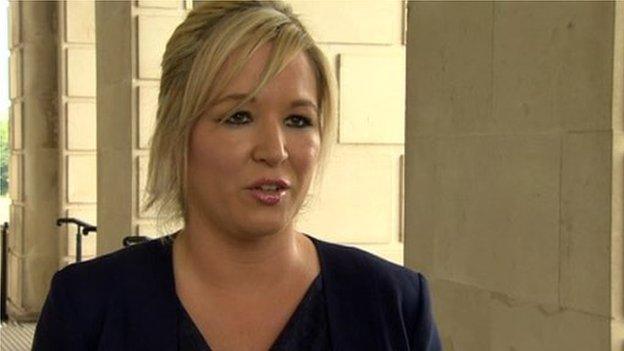
- Published28 July 2015
